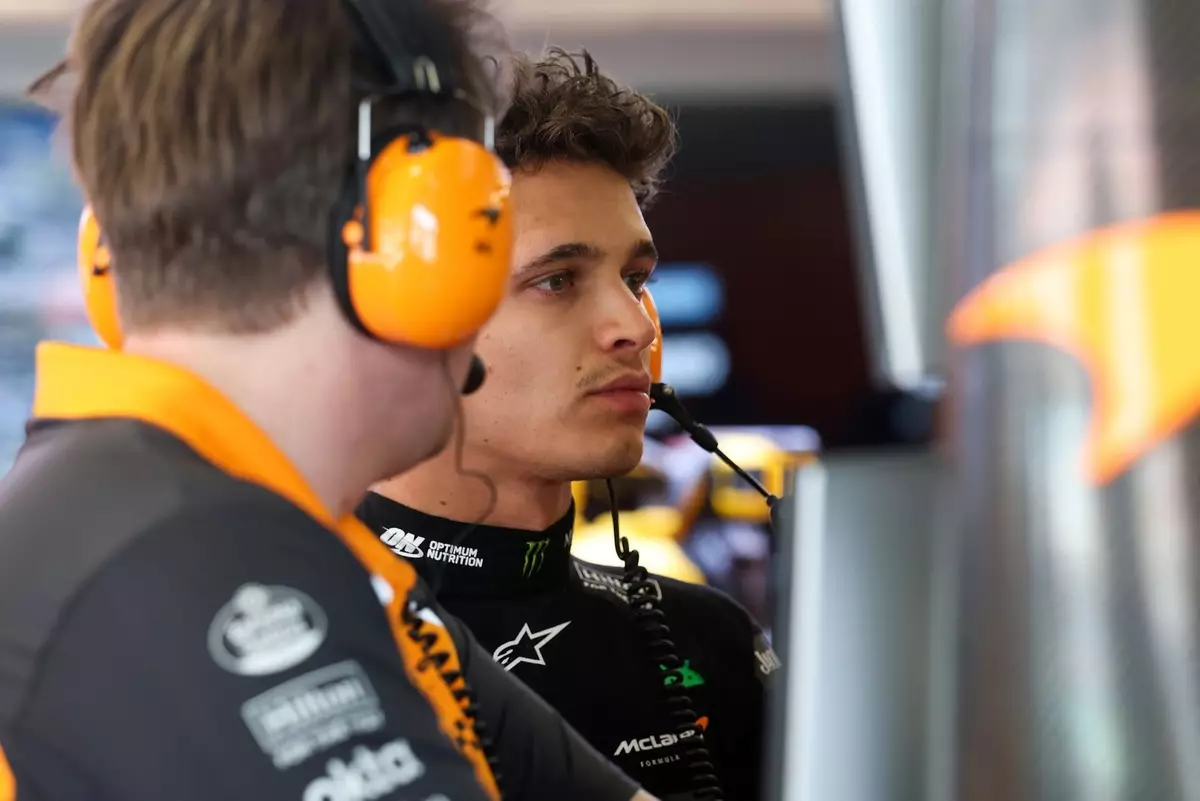Mastering the Craft of Speed: Lando Norris’ Qualifying Insights
In the high-octane world of Formula 1, every millisecond counts, and the pressure on drivers is immense. Lando Norris knows this all too well, especially during his qualifying session at the Spanish Grand Prix. The anticipation was palpable as he took to the track with a strong car beneath him, yet the outcome was bittersweet. While he initially led in the final qualifying segment, he ultimately ceded pole position to his teammate Oscar Piastri. This experience highlights the relentless challenges of racing, where precise execution under pressure is paramount.
Reflecting on his performance post-qualifying, Norris candidly shared the burdens that accompany such intense competition. “I made too many mistakes,” he admitted, pointing to critical errors that marred his final lap timing. In Formula 1, even minor slip-ups can have significant consequences, serving as a stark reminder of the sport’s unyielding demand for perfection. A small mistake in Turn 1 can affect the entire lap, impacting not just speed but also tire management—a key strategy in racing.
Key Takeaways
- Lando Norris faced intense pressure during qualifying at the Spanish Grand Prix.
- Minor errors can have major consequences in Formula 1 racing.
- Norris’s insights highlight the importance of mental resilience and strategic execution.
The Art of Qualifying: A Strategic Endeavor
Qualifying in Formula 1 is far from static; it’s a dynamic challenge that requires a blend of technical prowess and mental strength. As Norris noted, “The speed was easily there today.” This acknowledgment indicates that McLaren’s underlying performance was competitive, showcasing their progress this season. However, transforming potential into results during qualifying sessions is the ultimate challenge for any driver.
Norris’s comments about being “a little bit behind at the start of qualifying” offer deeper insights into F1 strategies. It suggests that psychological elements play a crucial role as drivers navigate their own rhythm while competing with fast teammates. Balancing this dynamic is no easy feat and places Norris at a crossroads: either harness pressure effectively or risk overextending himself with detrimental mistakes.

Lessons in Improvement: Embracing the Challenge
Despite setbacks, Norris remains focused and determined. His remark, “I know where I lost that time on the final lap,” reveals an acute self-awareness vital for elite athletes. Critically assessing performance to identify faults and strategize improvements is essential for success under pressure. His reflection demonstrates a willingness to learn from experiences, positioning him advantageously for future races.
Norris’s positive outlook despite finishing second speaks volumes about his maturity as a driver. “I still feel fine,” he stated, emphasizing mental resilience alongside physical prowess in racing. As race day approaches, his acknowledgment of the car’s performance reassures both him and McLaren’s team, who have made significant strides over the weekend.
The Bigger Picture: A Championship Perspective
Currently ranked second in the championship standings behind Piastri, Norris underscores team dynamics’ importance in pursuing glory. As they continue developing their cars and climbing standings, competitive rivalry between teammates can foster growth and improvement—a foundation for contending titles in Formula 1.
While missing pole position stings, Norris’s experience at the Spanish GP illustrates intricate interactions between skill, execution, and mindset. It offers lessons beyond racing in resilience—a reminder that progress measures not just victories but also lessons learned.
Final Thoughts
The journey of mastering speed in Formula 1 is replete with trials and triumphs. Lando Norris’s insights from qualifying sessions underscore the delicate balance between physical skill and mental fortitude required to excel in this demanding sport. His ability to reflect on performance and embrace learning exemplifies what it takes to thrive amidst high stakes. As you follow similar paths in your culinary adventures or other pursuits, remember that resilience and adaptability are key ingredients to success—whether on the track or in life.
Formula 1
Lando Norris
Qualifying Insights
Racing Strategy


Leave a Reply